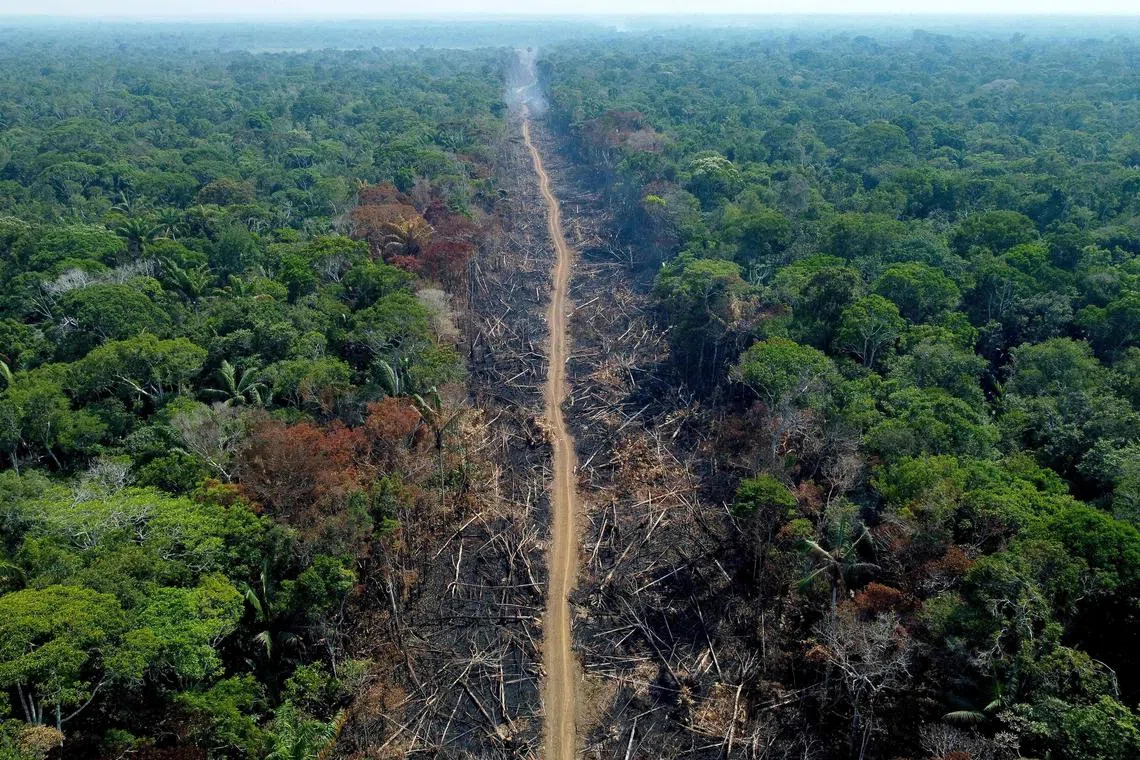UN’s COP15 summit aims for global pact to ensure there will be ‘more nature’ by 2030
Sign up now: Get ST's newsletters delivered to your inbox

Negotiators hope that the COP15 summit will yield a deal that ensures there is more nature in 2030 than what exists now.
PHOTO: AFP
MONTREAL - Countries were gathering on Tuesday for a key United Nations nature conference in Montreal, aiming to broker a new global agreement to protect what is left of Earth’s wildlife and natural spaces.
Negotiators hope that the two-week summit, known as COP15, will yield a deal that ensures there is more “nature” – animals, plants and healthy ecosystems – in 2030
“How do you translate ‘nature positive’ into an actual term we can measure?“ said Mr Basile van Havre, one of the co-chairs of the group responsible for drafting the agreement. “That’s what we’re doing through the creation of the new goals.”
More than 10,000 participants, including government officials, scientists and activists, are set to attend the summit starting on Wednesday and running through Dec 19.
The talks follow years of negotiations and calls by environmentalists and businesses to both protect natural resources and halt what scientists have labelled the sixth mass extinction.
More than 1 million species are now threatened with extinction, vanishing at a rate not seen in 10 million years. As much as 40 per cent of land surfaces on earth are considered degraded, according to a 2022 UN Global Land Outlook assessment.
“We need governments to adopt a clear and urgent mission to halt and reverse biodiversity loss by 2030,” said Ms Eva Zabey, executive director of Business for Nature, a global coalition of businesses and conservation groups.
Like many other campaigners, she called for “an ambitious, clear and enforceable international agreement” similar to the Paris Agreement on climate change. “We cannot afford to squander what could be a historic moment” in Montreal.
Sticking points
The UN biodiversity talks, held every two years, have never garnered the same attention as the world’s main environmental focus – the annual UN talks on climate change.
Healthy ecosystems such as forests and seagrass beds are key to controlling global warming. At the same time, rising global temperatures are increasingly threatening many ecosystems, as well as species unable to adapt quickly or to move to cooler climes.
Overall, the UN hopes to persuade all countries to pledge to put at least 30 per cent of their land and sea areas under conservation by 2030
Currently, only about 17 per cent of the world’s land area falls under some sort of protection, while less than 8 per cent of the global ocean is protected.
Another 22 potential targets are also being considered – from curbing pesticide use to cancelling some US$500 billion (S$678 billion) in subsidies for activities that cause damage to nature.
But the draft deal is still riddled with bracketed phrases, indicating a lack of agreement and ongoing discussion on hundreds of points, negotiators said.
Some of the toughest areas include how to ensure poor nations will have the funding needed to restore degraded areas, whether to include efforts to curb climate-warming emissions, and whether to impose a deadline for phasing out pesticides.
Even the 30-by-30 goal gets tricky in the details, given that some nations hold vast land or ocean areas teeming with wildlife, while others do not.
“There’s a lot that’s not agreed,” said Ms Sue Lieberman, vice-president of international policy at the non-profit Wildlife Conservation Society. “It’s going to be a very challenging process.”
Unlike the UN climate talks, Montreal’s summit will see few world leaders, which negotiators say could make it tougher to reach an ambitious agreement.
Canadian Prime Minister Justin Trudeau plans to attend the summit, his government said.
China was due to hold the summit in the city of Kunming, but postponed the event four times from its original date in 2020 due to Covid-19 before agreeing to hold the talks in Montreal.
Meanwhile, Montreal police have put up a 3m fence around the downtown summit venue, Palais des congres, and are preparing for thousands of student protesters expected to swarm the streets to demand a strong deal to protect nature. REUTERS


